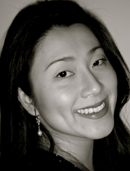|
Contemplating the Ancients -
A Dedication to My Ancestors
Xu Guangqi and Ji Yun
 |
 |
 |
|
Xu Guangqi and Matteo Ricci
徐光啓和利玛窦 |
Agnes Hsu
徐心眉 |
Ji Yun
紀曉嵐 |
(This lecture
will be in English.)
The Renwen Society has invited China Institute's own
Dr. Agnes Hsu for a special talk memorializing two
preeminent figures in modern Chinese history, Hsu Kuang-Ch'i
(Xu Guangqi) and Chi Yun (Ji Yun) on Saturday, Dec. 3, 2011. As a descendent of the
Hsu and Chi families, Dr. Hsu will talk about her paternal
family's Catholic origins tracing back to Hsu Kuang-Ch'i's
conversion in 1603 under the influence of Matteo Ricci, and
colorful tales of her maternal great-great-grandfather, Chi
Yun, Chief Editor of China's most important literary
encyclopaedia, Siku quanshu (Complete Library in Four
Branches of Literature).
Xu Guangqi
(1562-1633), simply known in Ming history as "the Grand
Minister" for his illustrious service, was an agricultural
scientist, astronomer, and mathematician. Xu was a colleague
and collaborator of the Italian Jesuits Matteo Ricci and
Sabatino de Ursis and together they translated several
classic Western texts into Chinese, including part of
Euclid's Elements. Hsu was one of the "Three Pillars of
Chinese Catholicism" and is known in Vatican history by his
baptismal name Paul Hsu. Ji Yun (1724-1805), best known by
his sobriquet Ji Xiaolan, was a prominent figure in Qing
cultural history, with many anecdotes recorded about him.
In his prolific career as a scholar and minister, he is
best known for his magnum opus, Siku quanshu. From 1773
onwards, Ji Yun edited this massive work together with Lu
Xixiong, in compliance with an imperial edict issued by the
Qianlong Emperor.
Dr. Hsu was born and
raised in Taipei, Taiwan. She studied Classical
Archaeology, English Literature, and East Asian Studies at
Bryn Mawr College; she received her M.A. in Asian and Middle
Eastern Studies and Ph.D. in Chinese Art and Archaeology,
both from the University of Pennsylvania. In 2002, Dr. Hsu was the
first American graduate student to receive a Mellon
Foundation pre-doctoral fellowship especially dedicated to
the study of ancient Chinese science at the Joseph Needham
Research Institute on the grounds of Cambridge University,
UK. From 2004 to 2007, Dr. Hsu was on the faculty at Brown
University and in 2007 was recruited by Stanford University
as the Mellon Research Scholar for a special project on Rome
and China. Dr. Hsu joined China Institute in late 2008,
first as its Director of Education and Dean of the Confucius
Institute. In April 2010, Dr. Hsu was appointed as the
Institute's Resident Scholar and Director of Arts and
Culture.
Dr. Hsu's research and
publications have focused on cross-cultural studies of early
empires, including The Exceptional Universal Value of the
Road Systems in Ancient Empires: A Comparative Study of the
Chinese Oasis Route of the Early Silk Road and the Qhapag
Ñan, a chapter in Geography, Ethnography, and Perceptions of
the World from Antiquity to the Renaissance, and "An Emic
Perspective of the Ancient Mapmaker's Art," which was
published by Cambridge University Press and considered for
the Barwis-Holliday Award for Far Eastern Studies by the
Royal Asiatic Society. Her forthcoming article on the
origin of the parallel perspective in ancient Chinese maps
and subsequent use in the painting tradition will be
published in a special edition of East Asian Science,
Technology and Medicine.
Since 2006, Dr. Hsu
has consulted the UNESCO World Heritage Centre as an
International Expert; she served on two scientific
committees for the Qhapag Ñan (the Incan Road) and the
Continental Silk Road. She has conducted fieldwork in
Xinjiang and traveled to Uzbekistan and Turkmenistan on
behalf of UNESCO and the American Museum of Natural History.
She consults and has appeared in Discovery Channel's
Ancient Manmade Marvels series on Chinese archaeology.
Dr. Hsu studied
Western opera and the Chinese zither and gave professional
concerts, including at the Strathmore Hall and the Kennedy
Center for the Performing Arts in Washington, DC, where she
is a native.
|
Admissions: free for Renwen
members and $5 for non-members. Advance registration
and payment are requested. To
register online, please fill out the following
form. To make payment online, please click the
following button. by phone, please . For inquiries, please call (646) 912-8861
or email
renwen@chinainstitute.org.
Location: China
Institute, 125 East 65th Street, New York, NY
10065 |
|